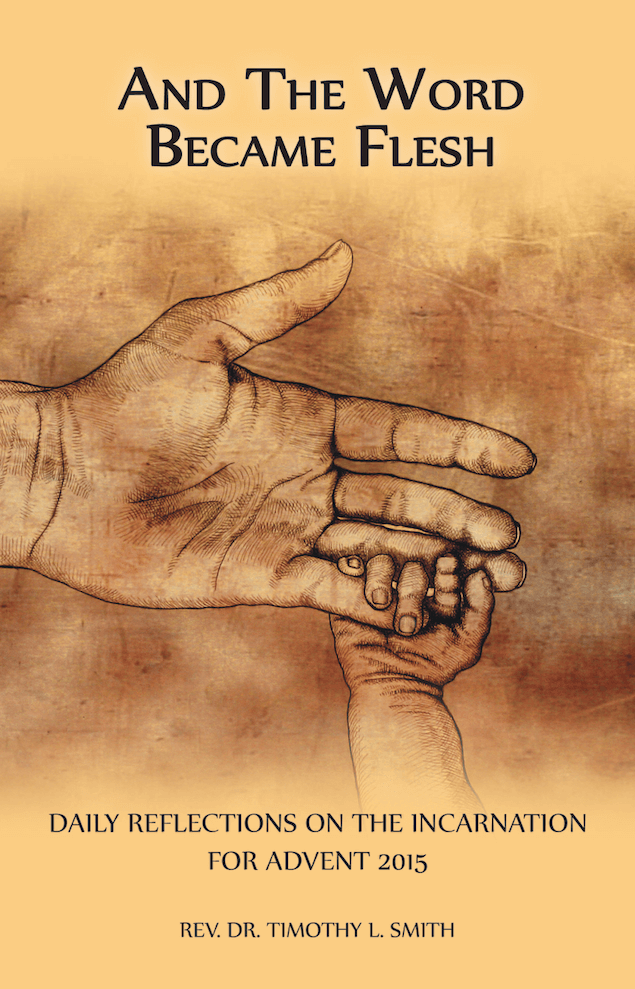The Fourth Day of Advent

John 1:14-18
A Sunday School teacher walked from desk to desk watching her pupils drawing. She paused at one desk where a boy enthusiastically worked; she asked what he was drawing. “I’m drawing God,” the little guy said. “But no one knows what God looks like,” she replied. “They will in a moment,” the boy proudly announced.
I admire the little guy for his gusto, but today’s text does say, “No one has ever seen God.” That is, until Jesus, no one had ever seen God in His essence, had perceived His unveiled reality. There are Scriptures in which people do ‘see’ God in visions, theophanies, and anthropomorphic representations (Genesis 20:3; 28:11-19; Exodus 33:21-23; Isaiah 6:1-5). But no mortal eyes had ever looked upon God in His full, radiant, effulgent glory.
Moses did pray to God “Show me your glory,” but was warned, “no one shall see me and live” (Exodus 33:18,20). Yet the infinite God whom no one had seen is now revealed in the Word become flesh. John testifies of God’s revealed Word, “we have seen his glory, the glory as of a father’s only son, full of grace and truth.” The word “glory” means that Jesus has revealed God’s glory to us, a glory “full of grace and truth”. In the graciousness and true love of Jesus the Word, the very essence of God is revealed to the world.
The Gospel writer wants us to know that Jesus the Word is the faithful revelation to us of the Father, as Jesus “is close to the Father’s heart”. The King James Version poetically translates this as “in the bosom of the Father”. It is a Hebrew idiom expressing the closest, most intimate relationship. It assures us that Jesus is the exact revelation of God’s nature and heart.
Later in this Gospel, a disciple is described as reclining on Jesus’ bosom, or “close to His heart” (John 13:23). This means that Jesus brings His disciples, and us, into the same intimate relationship with the Father that Jesus enjoys! “And for this reason it was that He graciously poured Himself out, that He might gather us into the bosom of the Father.” (Irenaeus, Against the Heresies, IV.2.1)
In Matthew’s Gospel Jesus invites you and me into His intimate knowing of the Father:
“…no one knows the Father except the Son and anyone to whom the Son chooses to reveal Him. Come to me, all you that are weary and carrying heavy burdens, and I will give you rest. Take my yoke upon you, and learn from me; for I am gentle and humble in heart, and you will find rest for your souls. For my yoke is easy, and my burden is light” (Matthew 11:27-30).
These often-quoted lines about the weary and burdened are frequently read out of context. Notice that a few lines prior Jesus spoke of His intimate knowing of the Father: “no one knows the Father except the Son,” but then adds, “and anyone to whom the Son chooses to reveal Him.” Anyone who is wearied and burdened is invited by Jesus to come and learn from Him what the Father is like: “gentle and humble in heart.”
God is acting fully in character when He humbles Himself in becoming flesh, lies in a manger, and prays for His executioners’ forgiveness. Theologian Karl Barth wrote of God revealed to us in Christ Jesus: “The humility in which He dwells and acts in Jesus Christ is not alien to Him, but proper to Him.” (Karl Barth, Church Dogmatics, IV/2) And again, Barth says, “He is in and for the world what He is in Himself…He is in our lowliness what He is in His majesty.” (Karl Barth, Church Dogmatics, IV/1)
In Jesus’ gentleness and humility we see the glory of God revealed! Come to Jesus and know the Father!
PONDERINGS
- In what ways do you see Jesus as revealing what the Father is like?
- If someone asked you what God is like, what would you say?
- How might knowing the Father through Jesus give ‘rest to your soul’?
EMBODIED PRAYER: STANDING
The most common prayer position in the Old and New Testaments was standing with eyes open looking upward, and raising arms with open hands. It is a prayer position practiced by the Lord Jesus (Luke 9:28-32; John 17:1). Ancient Jews called this position the Amidah (“standing prayer”); early Christians knew it as the Orans (“praying”) position. This standing prayer is seen on wall drawings in the catacombs in Rome, and is the posture recommended by early Christian theologians and Church Fathers.
Just as we stand to express respect and awe in our culture, so we stand to embody our respect and wonder at God’s majesty and greatness. We raise open hands towards Him ready to receive, and open our eyes towards Him as the source of all life and goodness.
Today and every day of this first week of Advent, pray the Lord’s Prayer:
- Standing
- Open hands raised towards heaven
- Open eyes looking expectantly to God



